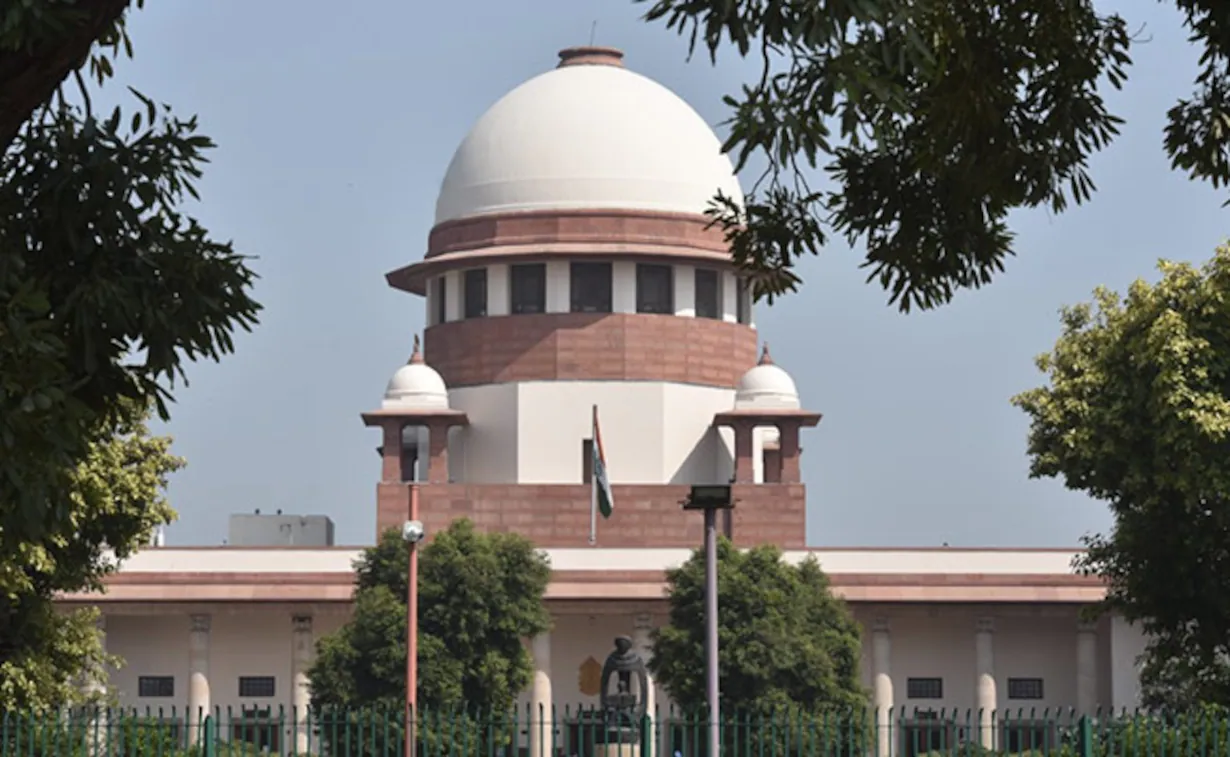Description

Copyright infringement not intended
Picture Courtesy: NDTV
Context: The withholding of assent to 10 bills by the Tamil Nadu Governor sparked a legal dispute, highlighting a broader concern over the powers of Governors in the legislative process, prompting multiple opposition-ruled states to seek clarity from the Supreme Court.
Details
- The recent incident in Tamil Nadu where the Governor, withheld assent to 10 Bills, led to a legal dispute over the powers of the Governor.
- This issue is particularly significant as several opposition-ruled states, including Tamil Nadu, have approached the Supreme Court seeking clarity on the Governor's powers in the legislative process.
Constitutional Framework
- Article 163 of the Indian Constitution outlines the powers of the Governor. Article 200 specifically addresses the granting of assent to Bills.
- When a Bill is presented to the Governor, Article 200 provides four options:
- Grant assent to the Bill.
- Withhold assent to the Bill.
- Return the Bill for reconsideration.
- Reserve the Bill for the consideration of the President.
- Article 200 includes a provision stating that the Governor "may, as soon as possible," return Bills (other than money Bills) for reconsideration. However, once the Legislative House reconsiders the Bill and sends it back, the Governor "shall not withhold assent."

Ambiguity and Dispute
- The dispute arises from the ambiguity in the provision regarding the timeframe for the Governor to return Bills for reconsideration. The lack of a specific timeframe has allowed Governors to delay the process indefinitely.
- While the Governor has discretion in granting assent, this discretion is not absolute. It must be exercised within constitutional limits and with cogent reasons.
- Article 200 uses the term "shall," indicating that the framers intended a mandatory tone, suggesting that the Governor is obliged to act promptly.
Supreme Court's Role
- The Supreme Court's 2016 ruling in the Arunachal Pradesh Assembly case, emphasised that the Governor cannot indefinitely withhold assent but must return the Bill to the Assembly with recommendations.
- States, including Kerala, Telangana, and Punjab, have approached the Supreme Court seeking intervention. They argue that Governors have been sitting on Bills for extended periods, causing a hindrance to the legislative process.
- The Supreme Court has held that the governor cannot act arbitrarily or capriciously, and must act in accordance with the aid and advice of the council of ministers, except in exceptional circumstances. The governor must also give reasons for withholding assent, and cannot delay the decision indefinitely.
- The governor’s right to withhold assent is a constitutional safeguard that ensures that the state laws are in harmony with the national interest and the basic structure of the constitution.
Arguments of the States
- Bills have been pending with the Governors for extended periods, impacting the legislative process.
- Governors have delayed assent to key Bills, affecting the functioning of the state assembly.
- Governors have allegedly brought the administration to a halt, creating an adversarial attitude.
Supreme Court's Decision
- The Supreme Court is now tasked with deciding whether it can fix a timeline for Governors to grant assent to Bills, essentially determining if it can prescribe limits to an office exercising constitutional powers.
- While the court has fixed timelines in the past for certain matters, prescribing limits to the Governor's powers is a novel issue.
- Governors cannot be made parties before the Supreme Court, so notice is typically issued to the Secretary of the Governor in such disputes.

Conclusion
- The case represents a novel constitutional question regarding the scope and limitations of the Governor's powers in the legislative process, and the Supreme Court's decision will likely set a precedent for future cases involving similar issues.
Must Read Articles:
GOVERNOR’S ASSENT TO BILL: https://iasgyan.in/daily-current-affairs/governors-assent-to-bill
APPOINTMENTS OF GOVERNORS: https://www.iasgyan.in/daily-current-affairs/appointments-of-governors
STATES APPROACH SC AGAINST THEIR GOVERNORS: https://www.iasgyan.in/daily-current-affairs/states-approach-sc-against-their-governors
|
PRACTICE QUESTION
Q. What are the primary constitutional rights and powers granted to a governor within a state's governance structure, and how do these rights impact their ability to govern effectively?
|








